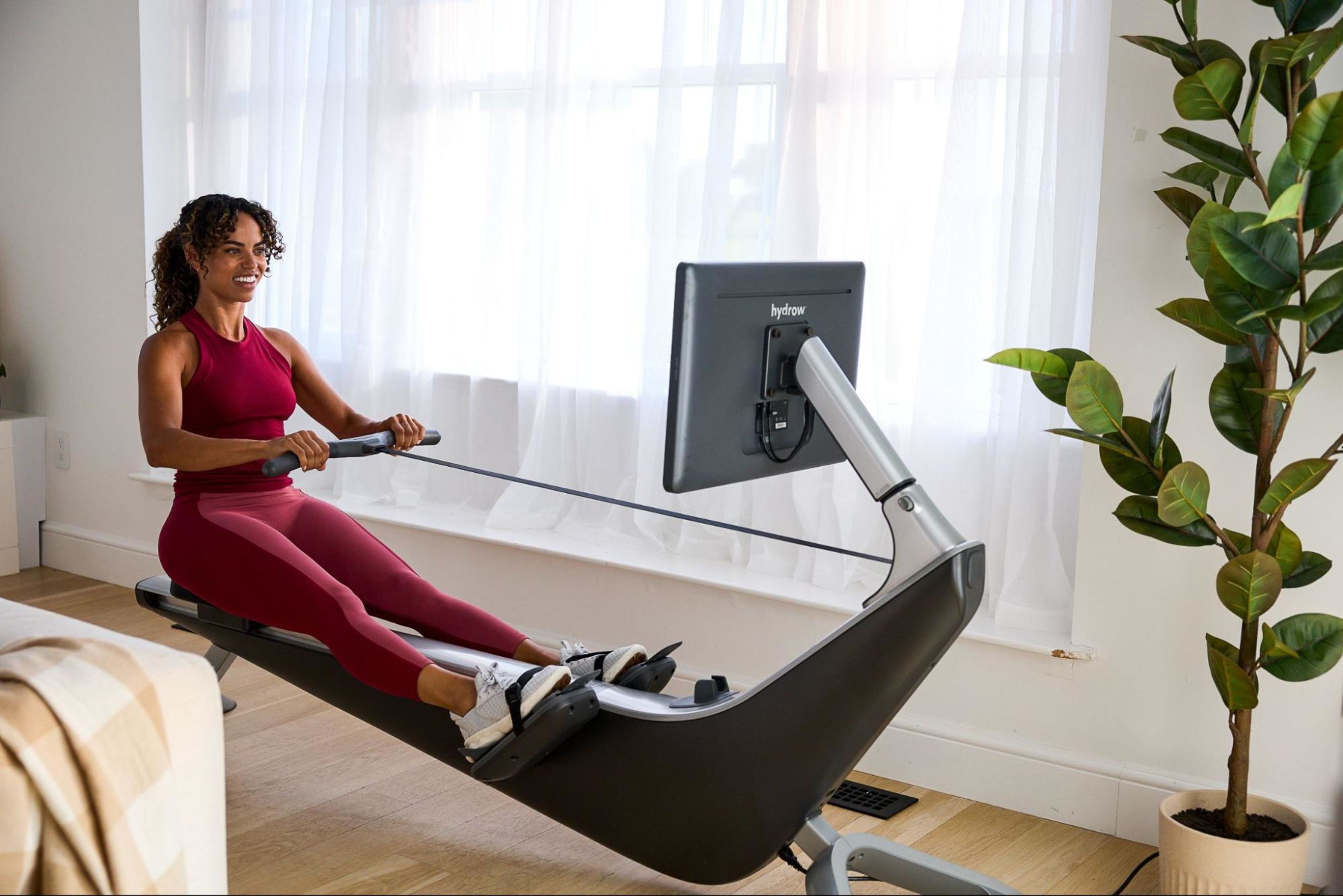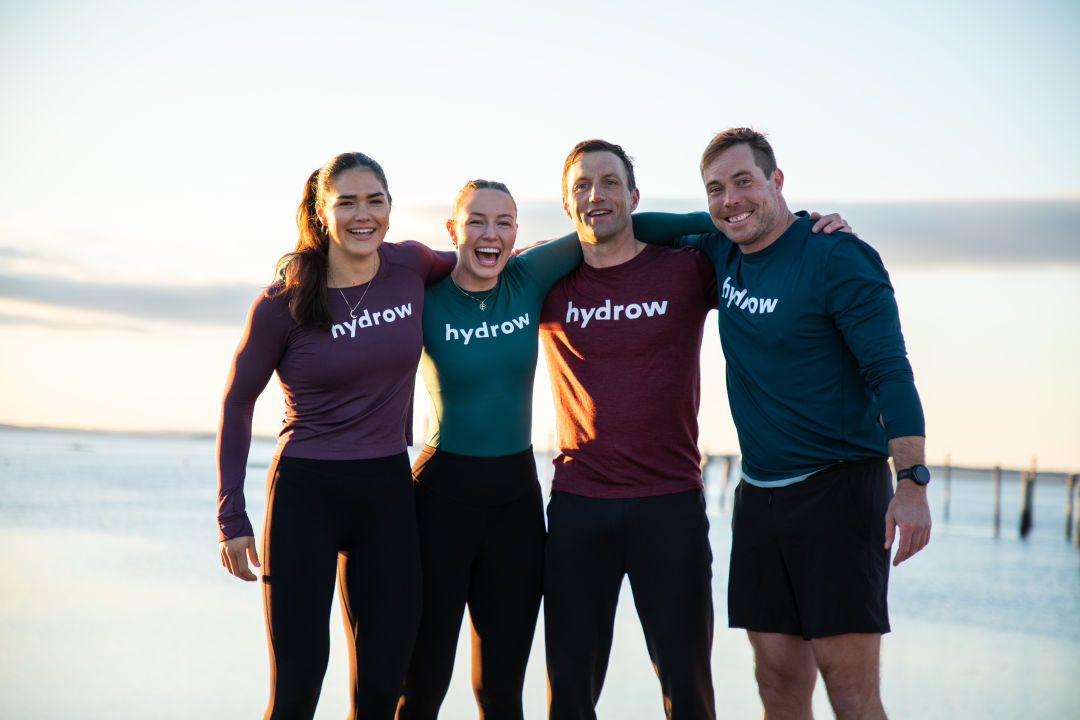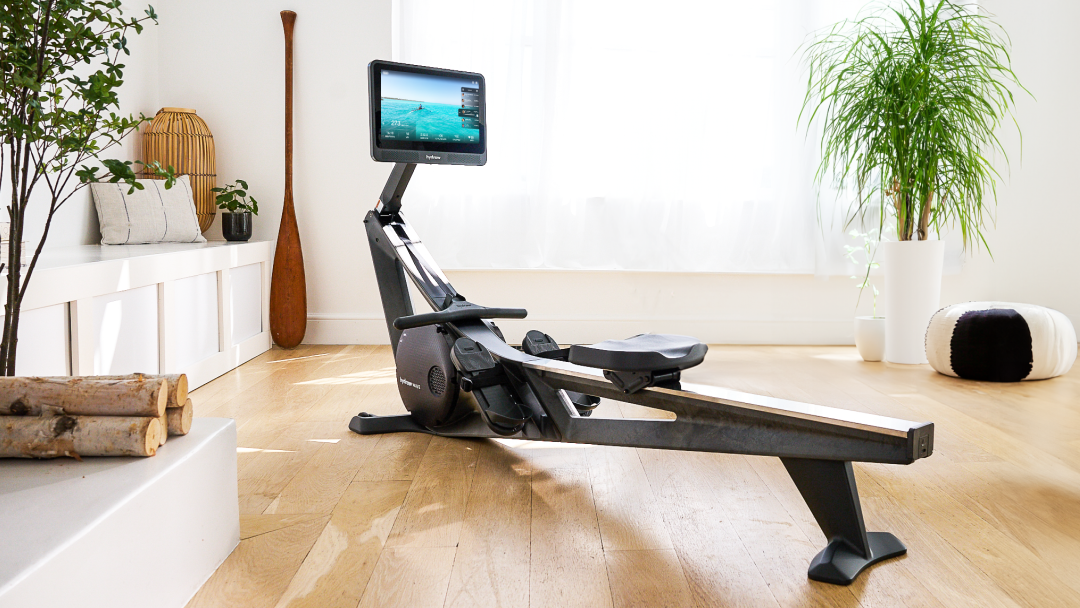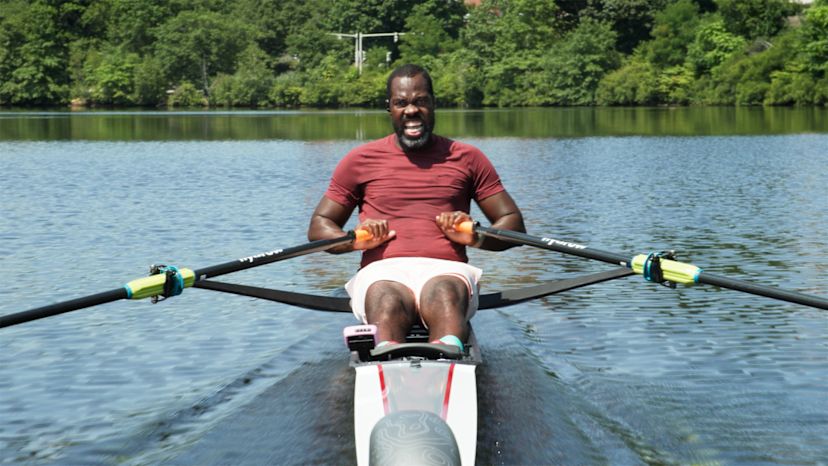Are Low-Impact Workouts Effective?

There’s a common misconception about low-impact workouts: Just because they’re gentle on the joints, that also somehow makes them less effective when it comes to building strength, endurance, and overall well-being.
However, rowing, swimming, walking, cycling, yoga, and even some strength training can all be low-impact! When you consider all those options, it’s pretty clear there are big benefits of regularly incorporating low-impact exercise into your fitness routine.
Keep reading for a deeper understanding of why low-impact workouts are great, how to tailor them to your fitness goals, and how to get the most out of your low-impact exercise of choice.
Myths about low-impact workouts
First, a definition: A low-impact workout minimizes the stress and force on your bones, joints, and muscles because typically at least one foot is always in contact with the ground. High-impact exercises such as running, jumping rope, and plyometrics, on the other hand, create a lot more strain and pressure on your body.
Notice how that definition didn’t mention anything about intensity. The biggest myth about low-impact workouts is that they’re not intense enough to deliver noticeable fitness results. But you can amp up the intensity of a low-impact workout like walking, cycling, or rowing to help you reach your fitness goals (including any weight-loss goals you might have). Intensity and impact are two entirely different variables. You can do high-intensity, low-impact workouts for maximum gains and minimum strain.
Because low-impact workouts are gentler on your joints, they’ve also sparked the myth that only beginners or older adults can benefit from them. But doing too many high-impact workouts without enough rest or variation in your routine can lead even the most experienced exercisers toward burnout and injury, according to the National Library of Medicine.
Are low-impact workouts effective?
They absolutely are. Think again about some of the examples of low-impact activity: Rowing, swimming, cycling, walking, using an elliptical, and dancing are among some of the most popular forms of cardio out there that get your heart pumping and your sweat flowing.
These low-impact workouts help you strengthen your heart and lungs, building cardiovascular endurance and physical fitness. They also burn major calories, which can help you along a weight-loss journey when combined with proper nutrition. And they do that while being gentler on your joints, which means you’ll be more likely to avoid injury and better able to stick with your fitness routine for longer.
There are lots of different ways to measure the effectiveness of low-impact workouts. Here are just a few examples to consider:
In a small 2015 study in the Journal of Exercise Rehabilitation, a group of women swam for an hour, three times a week. After 12 weeks, they had lower body fat, lower cholesterol, and better flexibility than a group of women who didn’t swim.
A small 2019 study in PLOS One found older adults who rode a bike for at least 30 minutes, three times a week for eight weeks saw improvements in cognitive function and overall well-being, compared to people who didn’t do any cycling.
A small 2023 International Journal of Environmental Research and Public Health study, postmenopausal women who did 30-minute rowing workouts three times a week for 10 weeks saw improvements in their cardiorespiratory fitness compared to those who didn’t do any rowing.
Any moderate physical activity, which can definitely include low-impact workouts, has health benefits, especially if you can manage to get at least 150 to 300 minutes of it each week, according to the Physical Activity Guidelines for Americans.
Related blog: Physical Activity vs. Exercise: What Is the Difference?
How to tailor low-impact workouts to your fitness goals
Your favorite low-impact activity might not be the same as your gym buddy’s. But there’s an option for pretty much any fitness goal.
For example, if you want to improve your flexibility and mobility and reduce stress, yoga or Pilates might be good low-impact workouts for you. Looking to build full-body strength? Rowing and weightlifting are smart choices.
If you want to burn fat, rowing, cycling, swimming, strength training, and walking can all help. If you like to use cardio machines at the gym, you could check out the elliptical, step machine, rower, or stationary bike. And if you just want to move more and enjoy yourself doing so, you can try a number of different low-impact workouts until you find something you really enjoy—whether it’s pickleball, salsa dancing, rock climbing, or anything else.
Tips for getting the most out of your low-impact workouts
It’s worth repeating: Low-impact does not mean low-intensity. So when you’re comfortable with a low-impact workout and want to get even more out of your routine, you can ramp up the intensity without adding stress or strain to your joints. Here are a few ways to do that:
Try an incline
As anyone who has ever walked up a steep hill knows, taking your usual physical activity on an incline requires more effort. So if you’re walking outside, head for a local hill. On a treadmill, bump up the incline. On a stationary bike, turn up the resistance. All of these minor tweaks will help your body grow stronger and fitter without adding any impact.
Pick up the pace
One of the reasons myths about low-impact workouts not being effective persist is because people might be picturing, say, a stroll around the block rather than an effortful, brisk walk. Your low-impact workouts should still get you at least a little sweaty and breathless; that’s how you know your heart and lungs are working and growing stronger as they adapt to that work.
If you’re not already huffing and puffing and want to get more out of your low-impact exercise, try dialing up your speed, whether you’re walking, cycling, swimming, rowing, or something else. The slight additional effort that takes can make a big difference in calories burned and physical fitness over time.
Add intervals
Alternating short periods of intense work with short periods of rest can help you burn more calories, shed fat, build muscle, and boost your cardiovascular fitness, all in a shorter amount of time than a slower, steadier workout.
That’s the idea behind high-intensity interval training (HIIT) workouts. Notice there’s no mention of impact in HIIT: You can do HIIT rowing workouts, HIIT walking, HIIT swimming—or any other low-impact activity you enjoy!—simply by picking up the effort for a brief burst, resting for a spell, then repeating several times.

Explore Hydrow’s library of 5,000+ rowing, circuit training, yoga, Pilates, and mobility workouts.
Perfect your form
In a low-impact workout like rowing, making sure your posture, form, and technique are spot on isn’t just a matter of aesthetics. Sure, you want to look like you know what you’re doing, but good form will also result in a more efficient and effective workout with a lower risk of injury.
To get the most out of your low-impact activity of choice, spend some time watching your form in a mirror or ask a friend to take a video of you so you can watch it and make adjustments. You can also do some practice drills that coach you toward proper form, such as using only your legs on the rowing machine or only your arms while swimming a few laps.
Find the best low-impact workout for you
Despite often being misunderstood as ineffective, low-impact workouts have major benefits for your cardio, strength, flexibility, and mental health. Because they’re gentle on your joints, they’re sustainable for the long term, and they serve as the foundation of many people’s fitness routines.
Low-impact workouts are a valid and powerful option for achieving whatever fitness goal you have your eye on while limiting your risk of injury and burnout. All you have to do is find the type of low-impact exercise you enjoy and will stick with.
Think that might be rowing? Hydrow’s rowing machines combine smooth, natural movement with advanced coaching technology that helps you train smarter and stronger. Each stroke works 86% of your muscles, delivering a full-body workout that’s low-impact and efficient.
Beyond rowing, Hydrow offers an extensive library of off-the-rower classes—including strength, mobility, yoga, and more—to help you build balanced fitness that supports your everyday life.
Explore the benefits of Hydrow’s rowing machines and workouts today.

Real strength keeps moving
Learn how working out with Hydrow can help support a fuller, more active life.








